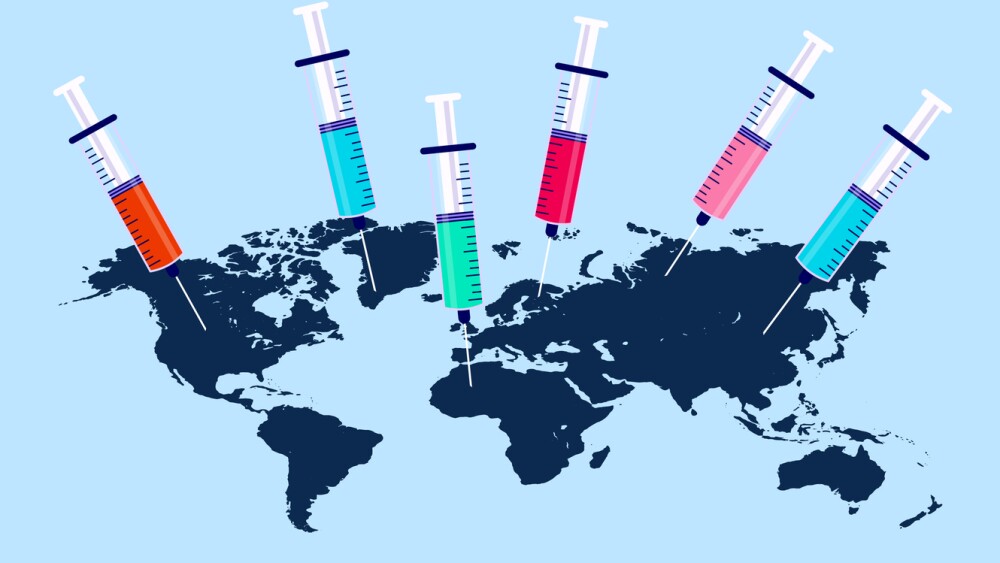Oncopeptides AB (publ) (Nasdaq Stockholm: ONCO), a global biotech company focused on the development of therapies for difficult-to-treat hematological diseases, today announces positive topline results from the head-to-head phase 3 OCEAN study evaluating the efficacy and safety of melphalan flufenamide versus pomalidomide in patients with relapsed refractory multiple myeloma (RRMM).
|
BOSTON, May 26, 2021 /PRNewswire/ --
Oncopeptides AB (publ) (Nasdaq Stockholm: ONCO), a global biotech company focused on the development of therapies for difficult-to-treat hematological diseases, today announces positive topline results from the head-to-head phase 3 OCEAN study evaluating the efficacy and safety of melphalan flufenamide versus pomalidomide in patients with relapsed refractory multiple myeloma (RRMM). The randomized study was initiated in 2017 and includes 495 patients from more than 100 hospitals in 21 countries around the world. "Following the accelerated approval of Pepaxto® in the U.S. earlier this year, the positive topline results from the OCEAN study marks another major milestone for Oncopeptides. It is very exciting news for patients and indicates that melphalan flufenamide has the potential to become part of the standard of care in relapsed refractory multiple myeloma", says Marty J Duvall, Chief Executive Officer at Oncopeptides AB. "By demonstrating that melphalan flufenamide is at least as efficacious as pomalidomide, we are now able to begin the preparation of a sNDA which could pave the way for a potential use of melphalan flufenamide in earlier lines of therapy in a substantially larger patient population." The PFS, as assessed by the independent review committee, demonstrated a Hazard Ratio* favoring melphalan flufenamide of 0.817 (95% CI: 0.659-1.012, p=0.0640) for the primary endpoint and shows that melphalan flufenamide is non-inferior to pomalidomide. The Hazard Ratio for PFS as per investigator assessment was 0.790 (95% CI: 0.639-0.976). In both assessments, the median PFS for the melphalan flufenamide arm was more than 40% higher than for the pomalidomide arm. The Overall Response Rate for melphalan flufenamide was 32.1% vs. 26.5% for pomalidomide. "The efficacy and safety data from the OCEAN study are very encouraging, and the results will be of importance in physicians' treatment decisions for patients with relapsed and refractory multiple myeloma," says Pieter Sonneveld, MD, PhD, Professor of Hematology at the Erasmus University of Rotterdam, and Principal Investigator of the OCEAN study. "Melphalan flufenamide has a unique mode of action, which in addition with its tolerability profile, makes the drug an attractive treatment option for many patients." Melphalan flufenamide and pomalidomide had similar discontinuation rates for adverse events, and the safety profile of melphalan flufenamide was in line with previous studies and consistent across age subgroups. The Company expects to present complete OCEAN data at an upcoming scientific congress. "The outcome from the phase 3 OCEAN study is very good news for patients with relapsed refractory multiple myeloma", says Klaas Bakker, MD, PhD, Executive Vice President and Chief Medical Officer at Oncopeptides. "This head-to-head-comparison was a bold study with an optimal design for demonstrating melphalan flufenamide 's true isolated treatment effects. Based on these data, Oncopeptides intends to submit a supplementary New Drug Application to the US Food and Drug Administration FDA, in Q4 2021, given the OCEAN data clearly show that melphalan flufenamide may be an important therapeutic option for the increasing number of patients who need more treatment alternatives. I am truly looking forward to sharing these data with a broader audience." Melphalan flufenamide is evaluated in a comprehensive clinical study program. In addition to the phase 3 OCEAN study, Oncopeptides is currently enrolling patients in the phase 3 LIGHTHOUSE study, with the aim to establish the efficacy and safety of a combination therapy with melphalan flufenamide plus daratumumab compared to daratumumab, based on the successful results from the ANCHOR study, presented at American Society of Hematology in December 2020. Limitation of Use PEPAXTO is not indicated and is not recommended for use as a conditioning regimen for transplant outside of controlled clinical trials. To view the full prescribing information please visit https://pepaxto.com/docs/pepaxto_pi.pdf About phase 3 OCEAN study The phase 3 OCEAN study is a global, randomized, head-to-head, open-label study, evaluating the efficacy and safety of melphalan flufenamide and dexamethasone, versus pomalidomide and dexamethasone in patients with relapsed refractory multiple myeloma who have received 2-4 prior therapies. The patients have previously been treated with at least an immunomodulator agent, and a proteasome inhibitor. They have all developed resistance to their last line of therapy and to lenalidomide, the most used drug in multiple myeloma. The study was initiated in 2017 and includes 495 patients from more than 100 hospitals around the world. The primary efficacy endpoint is Progression Free Survival. About Multiple Myeloma Multiple myeloma is a cancer of plasma cells, a type of white blood cell which produces antibodies to help fight infection. Multiple myeloma causes cancer cells to accumulate in the bone marrow. Approximately 7 per 100,000 Americans per year are diagnosed with multiple myeloma, making it a rare disease. A growing subset of this population is becoming triple-class refractory. The number of patients diagnosed with multiple myeloma is growing and the number of cases diagnosed annually is expected to almost double in 20 years. The average age for diagnosis is 70 years of age, and there is currently no cure. About Oncopeptides Oncopeptides is a global biotech company committed to developing targeted therapies for patients facing hard-to-treat hematological diseases. Oncopeptides has one U.S. FDA approved product, PEPAXTO® (melphalan flufenamide), known during clinical development as melflufen. PEPAXTO is approved for some patients with triple-class refractory multiple myeloma and was evaluated in several clinical studies including the pivotal Phase 2 HORIZON study and is currently being evaluated in the confirmatory Phase 3 OCEAN study. Oncopeptides' headquarters is in Stockholm, Sweden, with a U.S. headquarters in Boston, Massachusetts. In addition to Boston, Oncopeptides has a footprint in San Francisco, California, another U.S. biotech hub. For more information, please visit our corporate website at https://oncopeptides.se/en/. You may also visit our U.S. website at https://www.oncopeptides-us.com/en and follow us on our U.S. social media channels, Twitter and LinkedIn. PEPAXTO® is a trademark of Oncopeptides AB (publ). *Hazard ratio The hazard ratio is a measure of the relative risk of an event at each time point during follow-up when receiving melphalan flufenamide in relation to pomalidomide. A value below 1 indicates a better treatment effect for melphalan flufenamide , and a value above 1 indicates a better treatment effect for pomalidomide. For more information, please contact: Sarah Connors, Head of U.S. Corporate Communications, Oncopeptides Inc. E-mail: sarah.connors@oncopeptides.com Cell phone: 508-654-2277 Linda Holmström, Director of Investor Relations, Oncopeptides AB (publ) E-mail: linda.holmstrom@oncopeptides.com Cell phone: +46 70 873 40 95
This information was brought to you by Cision http://news.cision.com The following files are available for download:
SOURCE Oncopeptides inc |




